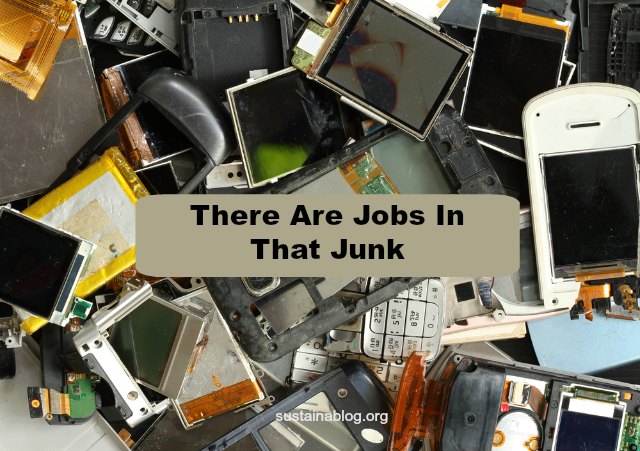Photographs from places like Accra, Ghana show us the ugly side of electronic waste recycling, and drive us to want to “do something.” So far, that “something” has usually involved bans on dumping electronic waste in the developing world. But is that the most productive way to address the threats to environmental and human health posed by e-waste dumps like the infamous Agbogbloshie? Wouldn’t establishing centers for proper electronic waste recycling, and training these young men to work in safe, clean, healthy environments make much more sense?
That’s what one social enterprise in Queensland, Australia is doing. According to Pro Bono Australia, “Substation33 disassembles electronic waste and redirects recovered materials back into the manufacturing stream, diverting it from landfill. It doubles as a community resource offering practical volunteering, work experience and job placement opportunities for residents of the Queensland city of Logan.” In short, the organization trains people with challenges to employment to disassemble and otherwise process the e-waste that their neighbors are tossing out.
Tony Sharp, Substation33 founder and Social Enterprise Development Manager at parent organization YFS, built this social enterprise out of twin motivations: to teach people who want to work how to work, and to address the amount of electronic waste heading for landfills. In just over two years of operation, Substation33 “has managed to disassemble 90,000 kilograms of eWaste and provide 19,300 hours of volunteer employment spread across of 287 people, along with 7,800 hours of additional paid employment.”
What’s particularly impressive is that Sharp and his team have managed to get young organization to the point of almost complete self-funding: “Roughly 70 per cent is derived from trading [recovered materials], and the rest from philanthropy.” While finances are always a major area of concern, Sharp believes that the model he’s created could be franchised to other areas in order to increase its impact.
Of course, this is all happening in a developed country – could this model move as is to a place like Accra without major revisions? I know many social enterprises aimed at economic empowerment are working well in Africa; why not apply that model to electronic waste recycling? I’m certainly not suggesting that this is a complete answer to the growing issue of e-waste, but when combined with extended producer responsibility, redesign for reuse and recycling, and vastly improved health and safety precautions, there’s no reason a place like Agbogbloshie couldn’t become a point of pride, rather than an embarrassment to the electronics industry.
Know of other developing world social enterprises training workers to handle e-waste safely and responsibly? Tell us about them.
Photo credit: Shutterstock


Lawernce Kenemore Jr.
Love it same thing we do at FillAboxrecycling